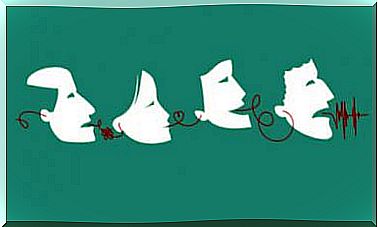Dental Anxiety

Have you ever wondered what the term dental anxiety refers to? The first word of the term is known, the second can throw us off a bit when going with the first, since we would understand it in another context.
Anxiety appears as a psychophysiological response to the appearance of a threat. When we believe that we are in danger, the alarm goes off to warn us that we are running some type of risk and thus be able to act. On the other hand, pathological anxiety appears when there is no imminent danger and, even so, the different alarm signals are triggered in our body.
Dental anxiety is a type of anxiety related to the mouth. In the successive lines we are going to define dental anxiety, we will talk about the possible causes and whether there is any treatment or are there some techniques that help us combat it.

When do we talk about dental anxiety?
Dental anxiety is a type of anxiety that appears associated with our mouth when we go to the dentist, during our stay there or when receiving some treatment. In the words of Ríos, Herrera and Rojas (2014):
Dental anxiety has been ranked as the fifth most feared common situation. Given its prevalence, it is normal for people who suffer from it to try to avoid visits to the dentist at all costs. In fact, few people do not feel some anxiety when it comes to going for a consultation.
What variables determine its appearance?
Dental anxiety is a complex phenomenon and its development does not depend only on our score in one variable. As factors consistently linked to a higher incidence of dental anxiety we find:
- The personality characteristics .
- Past traumatic dental experiences, particularly in childhood. These traumatic experiences condition future visits to the dentist.
- The influence of anxious dental relatives that arouses fear in the person (vicarious learning).
- Fear of pain and therefore of suffering some kind of damage during the intervention.
- Fear of blood and wounds.
Of all the causes, it is the fear of pain that has been most strongly related to the development of dental anxiety and the avoidance of an intervention.

How can we fight it?
Following the aforementioned authors, in order to reduce or eliminate the symptoms of people with dental anxiety we can distinguish between a series of techniques such as:
- Relaxation techniques. Relaxation seeks both mental and physical relaxation, which facilitates recovery and balance towards a state of tranquility in people with this type of anxiety. If taking deep breaths we activate the sympathetic nervous system with each exhalation. This system gives us calm and tranquility throughout our body.
- Distraction techniques. They aim to manage anxiety, stress, and pain caused by different clinical procedures, by focusing attention away from painful procedures. Music, for example, is a form of distraction. It can alleviate pain and anxiety by consciously shifting attention away from symptoms. According to pain control theory, pain receptors work together to send distress signals to the brain, therefore distractors such as music can block certain pain pathways and decrease the amount of pain perceived.
- Control perception. The idea is to promote communication between the dentist and the patient, for example, to provide them with information regarding which dental procedures they will use during the intervention, which would reduce their feeling of loss of control. In addition, the possibility of being able to stop the intervention when the patient deems it appropriate, which would lead him to manage his anxiety in a more adequate way.
In addition to the use of this type of technique, we can ask our family and friends for references about a specific specialist. Hearing positive comments about someone from people we trust reinforces us and makes it possible to reduce our anxiety.
If none of this helps us reduce or eliminate the symptoms, it is best to go to a specialist for guidance.









